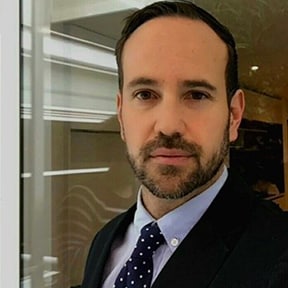3 Min WatchArticle19 Dec 2024
How Gold Became One of the World's Favorite Assets
At a Glance
"Gold is a chameleon as a financial asset. It suits different macro perspectives and different macro dynamics at different times." That's how Elise Backman, a commodity investor at Wellington Management, described the factors driving the precious metal's continued popularity.
"We are in a period of shorter and more volatile macro changes," Backman said. “Gold is really good at acting as a defense when the timing of macro cycles is uncertain. That's why it's a critical asset across portfolios, including ours."
As the metal's "financialization" has deepened, its buyer pool has become much larger and diverse, Backman noted.
"One day you might have central banks coming in to buy gold, the next day you might have ETFs… or future buyers," she said.
Backman highlighted a few milestones driving gold to become the asset it is today. The Great Financial Crisis, for instance, was a big one, fueling a gold bull run in the early 2000s, she noted. More recently, a global de-dollarization phenomenon stemming from the Russia-Ukraine war, coupled with changing U.S. policy around how the dollar is orchestrated, are driving today's purchases from more traditional buyers.
Futures Act as Price Benchmark
Gold futures, meanwhile, have long acted as a global price benchmark.
"In the dynamic world of finance, gold stands as one of the oldest and most reliable assets," said Jin Hennig, global head of Metals at CME Group. "For the past 50 years, Gold futures have been at the forefront of price discovery, serving as the global benchmark for gold pricing. Gold's quality and universal appeal have made it a mainstay in investment portfolios worldwide."
Amid this backdrop, roughly $63 billion in notional value of gold is traded daily across the entire Gold futures product line, according to CME Group data. Gold futures at CME Group provide unmatched liquidity and market depth to boost trading efficiencies for market participants globally.
"CME is an extremely important aspect of the gold business," said Dennis Suskind, a member of the CME Group Board of Directors, adding that the exchange began offering Gold futures in 1974, which allowed Americans to trade the yellow metal after they were banned from owning gold many years prior.
"Gold has a special place in the world," added Suskind. "People in the 60s, 70s and 80s would use [it] as a substitute for anything – inflation, deflation – it was the way to hedge anything that you had; it was a stable commodity, it was a store of value, [and] you could convert it to dollars anytime you wanted to very easily.
"There is nothing else in the world that is a substitute for gold."
Watch their full remarks in the video above.
OpenMarkets is an online magazine and blog focused on global markets and economic trends. It combines feature articles, news briefs and videos with contributions from leaders in business, finance and economics in an interactive forum designed to foster conversation around the issues and ideas shaping our industry.
All examples are hypothetical interpretations of situations and are used for explanation purposes only. The views expressed in OpenMarkets articles reflect solely those of their respective authors and not necessarily those of CME Group or its affiliated institutions. OpenMarkets and the information herein should not be considered investment advice or the results of actual market experience. Neither futures trading nor swaps trading are suitable for all investors, and each involves the risk of loss. Swaps trading should only be undertaken by investors who are Eligible Contract Participants (ECPs) within the meaning of Section 1a(18) of the Commodity Exchange Act. Futures and swaps each are leveraged investments and, because only a percentage of a contract’s value is required to trade, it is possible to lose more than the amount of money deposited for either a futures or swaps position. Therefore, traders should only use funds that they can afford to lose without affecting their lifestyles and only a portion of those funds should be devoted to any one trade because traders cannot expect to profit on every trade. BrokerTec Americas LLC (“BAL”) is a registered broker-dealer with the U.S. Securities and Exchange Commission, is a member of the Financial Industry Regulatory Authority, Inc. (www.FINRA.org), and is a member of the Securities Investor Protection Corporation (www.SIPC.org). BAL does not provide services to private or retail customers.. In the United Kingdom, BrokerTec Europe Limited is authorised and regulated by the Financial Conduct Authority. CME Amsterdam B.V. is regulated in the Netherlands by the Dutch Authority for the Financial Markets (AFM) (www.AFM.nl). CME Investment Firm B.V. is also incorporated in the Netherlands and regulated by the Dutch Authority for the Financial Markets (AFM), as well as the Central Bank of the Netherlands (DNB).
 By Ivan Castano
By Ivan Castano

